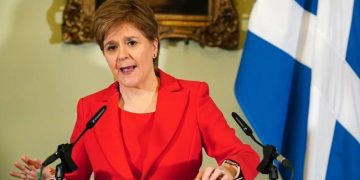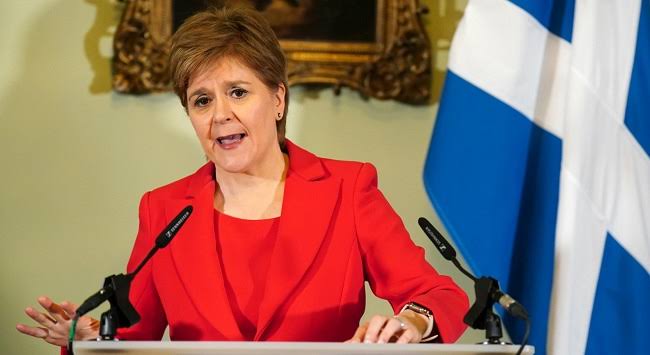By Enyichukwu Enemanna
Scottish First Minister, Nicola Sturgeon, in a surprise press conference in Edinburgh on Wednesday, announced her resignation, saying her departure is not the result of short-term pressures.
The Scottish National Party, (SNP) leader said serving in the role for more than eight years had been a, “privilege beyond measure, one that has sustained and inspired me in the good times and through the toughest hours of my toughest days.”
“However, since my very first moments in the job, I have believed the part of serving well would be to know almost instinctively when the time is right to make way for someone else. In my head and in my heart, I know that time is now,” she said.
The 52-year-old added that she would remain in office until her successor was elected, with a timetable due to be announced by the Scottish National Party in the coming days.
“I’ve been trying to answer two questions – is carrying on right for me, and more importantly, is me carrying on right for the country, my party, and the independence cause I have devoted my life to,” Sturgeon said.
Sturgeon, who became the first woman to lead Scotland when she took power in 2014, vowed to continue pushing for Scottish independence.
She had overseen unprecedented electoral success for the SNP, as she pushed for another referendum on the issue.
She took over in the aftermath of the last poll, which saw Scots reject breaking away from the rest of the UK by more than 10 percentage points and has been doggedly pushing for another vote.
In recent months, she has faced criticism and praise over legislative reform led by the SNP, which would make it easier for people to change their legal gender and lower the age at which they can do so, from 18 to 16.
Sturgeon has come under pressure to clarify her stance on transgender women being jailed in women’s prisons, after safety concerns were raised over a case in Scotland.
In Wednesday’s press conference, she denied the debate was the “final straw” that pushed her to resign, doubling down that she would not be pushed out by a “short-term issue.”
She separately acknowledged that she had become a polarizing figure, adding that another member of the SNP would be better-placed to lead the party ahead of next year’s expected general election.
She described working in politics as “brutal” and said politicians needed to, “reset the tone and the tenor of our discourse.” She added that serving as leader took its toll on an individual and those around them, and that leading the country through the pandemic had been the hardest thing she had ever done.
Sturgeon committed to stay in politics following her resignation and said she would continue to campaign on causes such as, early-years care and Scottish independence — to which she believes her party has brought the country closer.




































